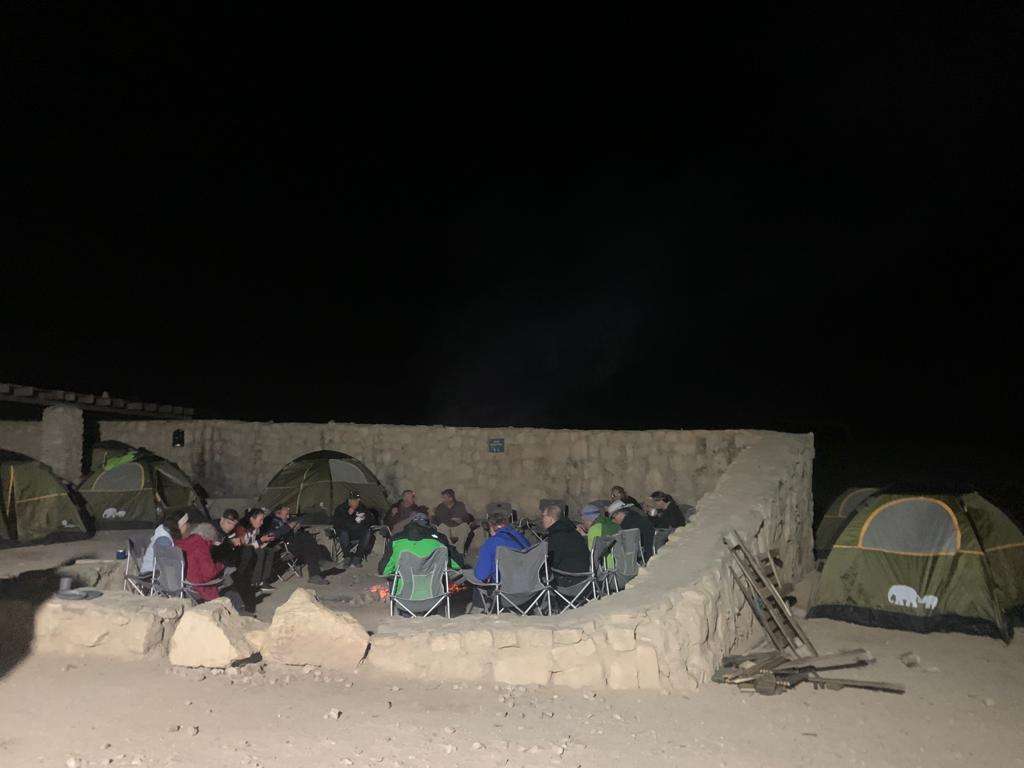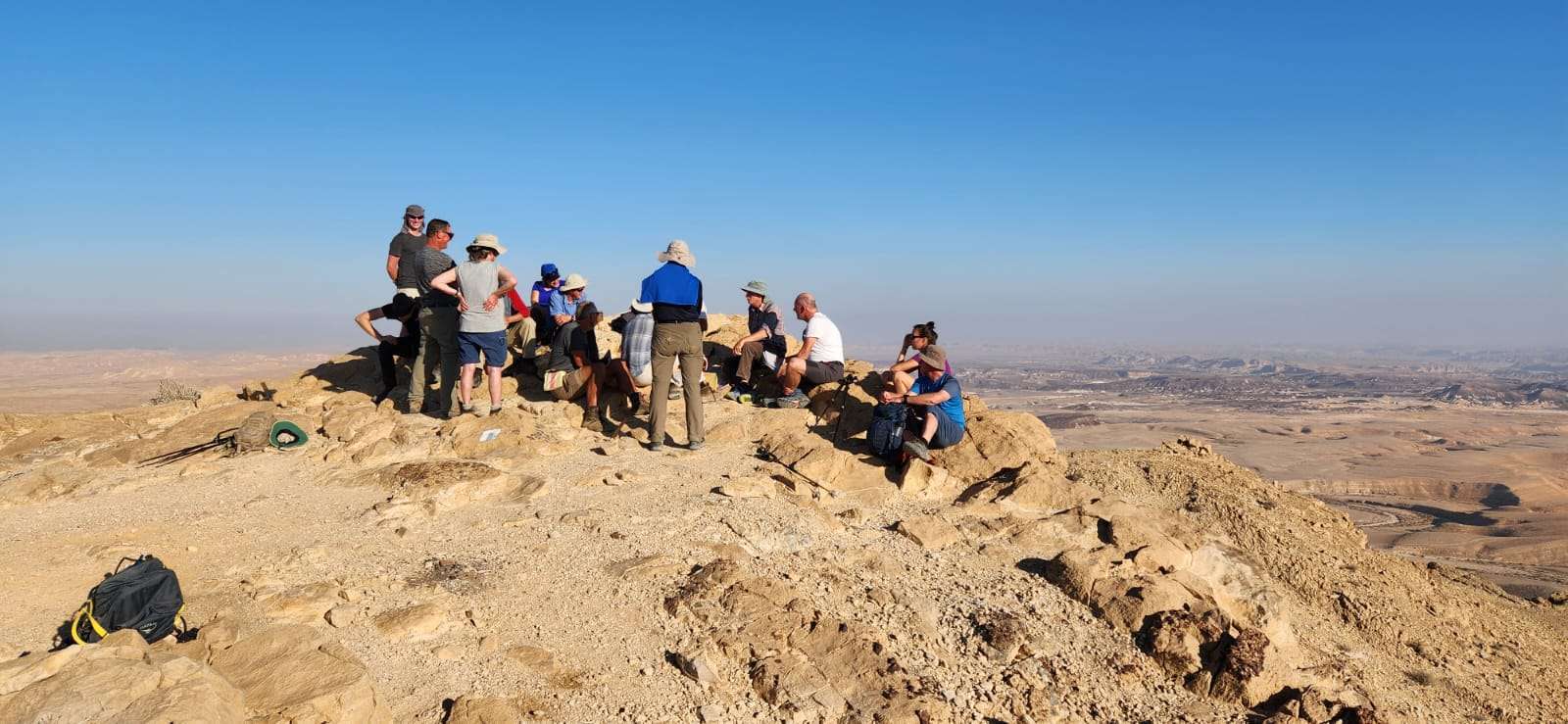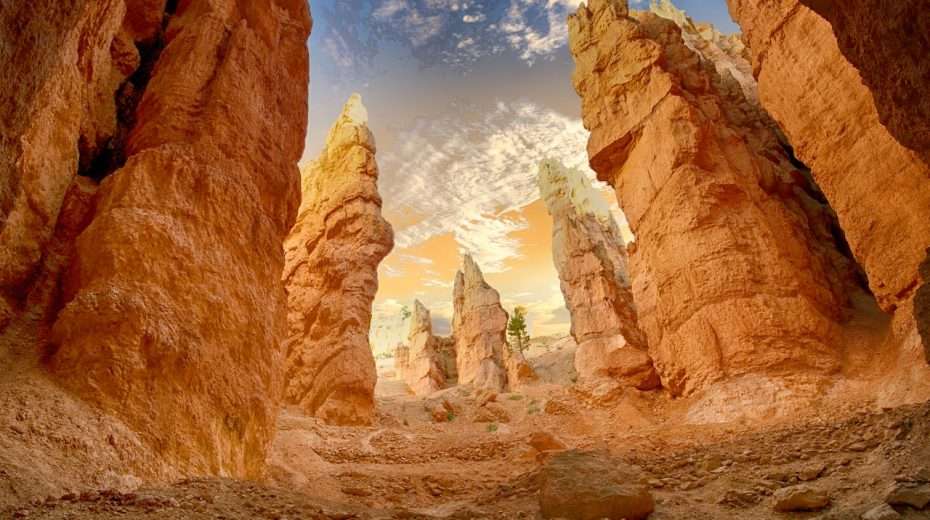In Israel, the Bible unfolds in completely different dimensions. I became aware of this again when we were walking in the desert during the week of Hanukkah and climbing Karkom, the mountain of God. There my thoughts turned to Moses and Elijah. Both were men of God and both were on Mount Horeb. Both prophets experienced God and bore the burden of the children of Israel. But both behaved differently before God and the people of Israel. One emphasized God’s gracious side and the other God’s zeal and jealousy. One was willing to sacrifice his life for the people, the other less so. We humans often have our own ideas about God and how we would like Him to act.

According to the Bible, Sinai, Horeb and the mountain of God are one and the same mountain. At the top of the plateau is a hill with a small cave. This reminded me of the cave that Elijah entered and stayed there overnight. Previously, Elijah had walked for 40 days and 40 nights to the mountain of God, as it says in 1 Kings 19. There, God addresses Elijah and asks, “What are you doing here?” Elijah replies:
“I was zealous and jealous (קַנֹּא קִנֵּאתִי) for the LORD, the God of hosts, for the children of Israel have forsaken your covenant, and broken down your altars, and slain your prophets with the sword. I am the only one left and now they want to take my soul!”
God responds by telling Elijah to go stand atop the mountain before Him:
And behold, the Lord passed by, and a great and strong wind tore into the mountains and broke the rocks in pieces before the Lord, but the Lord was not in the wind; and after the wind an earthquake, but the Lord was not in the earthquake; and after the earthquake a fire, but the Lord was not in the fire; and after the fire a still small voice.
In the story of Moses, the God of Israel is presented in a very different way. Moses first met God at Mount Horeb. Moses knew the God of Abraham, Isaac and Jacob personally. “The Lord your God is like a consuming fire, He is a jealous God (אֵל קַנָּא)” is how Moses describes God (Exodus 24). In addition, Moses recounts his revelation of God in chilling and frightening terms: “And the mountain burned in fire to the heart of heaven, all was darkness, cloud and mist.” A jealous god. A god of vengeance. Everything around God was dark, foggy and covered with clouds.

If you now compare both moments with God between Moses and Elijah, you get two different impressions. Moses describes a gigantic, jealous God. With Elijah, another God can be recognized from the Bible text. A God not manifest in the power of nature, not in the wind. A God who is not in the earthquake. A God who is not in the fire. But a God who reveals Himself in a still, small voice, a soft murmur. God introduces Himself to Elijah very differently than He had done with Moses. He sought to save the almost hopeless Elijah from his own zeal and jealousy. It wasn’t Elijah’s place to be so fanatical. God is a jealous God. That’s God’s role, and it’s not one that man should take upon himself.
Moses was willing to give his life for the people of Israel:
“Forgive them their sins, and if not, blot me out of your book that you have written!”
Elijah asked for death for personal reasons:
“It is enough ! So take now my soul, LORD, for I am no better than my fathers!”
Moses also loses the zest for life in Numbers 11:14, though not for personal reasons. Rather, he can no longer bear the burden:
“I cannot carry all this people alone; because it is too difficult for me.”
A desperate Elijah wants to die because the people seek to take his life. Moses, on the other hand, tries everything to save the people of Israel. He uses his rhetoric and defends the people (Exodus 33). By contrast, Elijah only reproaches the people of Israel. Moses identifies with the gracious and merciful God, and Elijah with the zealous and jealous (קַנֹּא קִנֵּאתִי) Lord of Hosts.

When Elijah heard the “still voice of a gentle whispering,” he covered his face with his cloak and went out and stood at the entrance of the cave. And behold, there was a voice, and it said: “What are you doing here, Elijah?” And Elijah answers:
“I have been zealous and I am jealous (קַנֹּא קִנֵּאתִי) for the LORD, the God of Hosts. The children of Israel have forsaken your covenant, destroyed your altars and killed your prophets with swords. I am the only one left and now they want to take my soul!”
Elijah continues to put down the people of Israel and doesn’t stop complaining. Twice Elijah repeats his criticism in the same words, in verse 10 and verse 14.
Elijah is stubborn and shows no mercy. God understands that Elijah is more jealous than the God of Israel. Elijah uses the word zeal or jealousy twice (קַנֹּא קִנֵּאתִי). Elijah is more angry with the people of Israel than God is. Moses had the same reasons, but he emphasized more the love of God and His grace and mercy. These differences can be seen in many spiritual leaders today, whether in the Jewish or Christian community. How many people do we know who are overzealous for God? Why? God is a jealous God, that is His job. Not ours.
And what does God do? He effectively fires Elijah. But not before tasking him with anointing two kings. With this, God signals to Elijah that every human being is replaceable, including prophets. In Damascus, Elijah anoints Hazael king over Syria, and in Israel he anoints Jehu as king. Only then does God say, Now it’s your turn, Elijah. “You shall anoint Elisha to be your prophet.”















